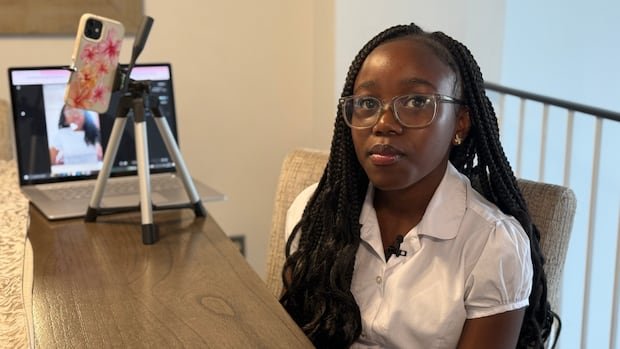Chloe Kizito, a 16-year-old residing in Kitchener, Ontario, frequently encounters misleading health and science videos on her social media feeds. As a fact checker and youth journalist at MediaSmarts, she creates videos to teach teenagers how to evaluate the credibility of online content.
Kizito highlighted the rise of health misinformation over the past year, attributing it to the proliferation of deepfakes and artificial intelligence on social media platforms. These deceptive videos often manipulate the image of well-known individuals to convey false information.
Recently, the Canadian Medical Association, along with regional medical bodies and experts, issued a call to action urging governments, healthcare providers, and educators to combat the spread of inaccurate health information. The consequences of misinformation, according to Canadian doctors, include patients rejecting proven treatments, leading to severe outcomes, including fatalities.
Tim Caulfield, a law professor at the University of Alberta and a signatory to the CMA’s statement, emphasized the role of social media influencers and podcasters in disseminating health misinformation, which has increasingly become politicized. Caulfield stressed the detrimental impact of misinformation, such as vaccine hesitancy resulting in preventable diseases like measles causing fatalities.
Dr. Joseph Dahine, an intensive care physician in Laval, Quebec, shared a harrowing experience of a COVID patient who refused to believe in the virus and tragically passed away after rejecting medical intervention. Dahine emphasized the critical need to combat misinformation, especially concerning health-related issues.
CMA President Dr. Margot Burnell proposed two solutions to address the spread of misinformation. Firstly, enhancing access to primary care services to ensure individuals seek medical advice from qualified professionals. Secondly, providing patients with accurate scientific information with empathy and care to empower them to make informed decisions about their health.
To tackle misinformation effectively, Caulfield recommended educating individuals about recognizing and debunking false information, promoting critical thinking skills, and emphasizing the importance of scientific consensus. He emphasized the significance of pausing before sharing potentially misleading content.
In response to misinformation within her social circle, Kizito advised a cautious approach, encouraging her peers to verify the source of information before forming opinions. MediaSmarts suggests practical steps to identify misinformation, including using fact-checking tools, verifying news sources, and cross-referencing information from reliable outlets.
In conclusion, the fight against health misinformation requires collective efforts from individuals, healthcare professionals, and policymakers to safeguard public health and prevent the harmful consequences of false information.


